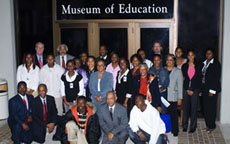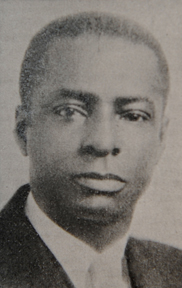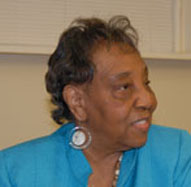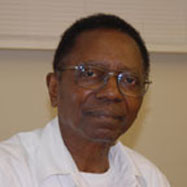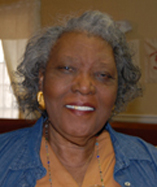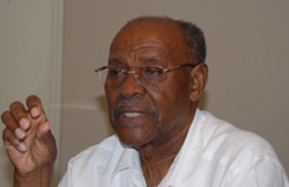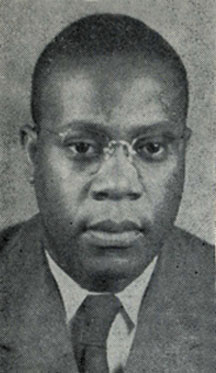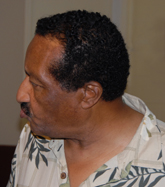Staley High School Principals: |
||||||||||||||||||||||||||||
| The Secondary School Study was establishing new roles for educational administrators and leaders. Democratic ideals served to define the experimental efforts of schools. The principal provided direction and instilled confidence while also fostering flexibility and extending authority among the staff. Articulating and achieving such a balance of strong leadership with diffused authority proved difficult. Yet, while the educational leaders of the school changed regularly during the study, the teaching staff remained stable and seemed to establish the strength of community. | ||||||||||||||||||||||||||||
E. J. Granberry, Principal 1937-1940 |
While the focus of this project remains on the Secondary School Study during the years 1940-1948, no portrayal of Staley High School would be complete without the recognition of the years immediately proceeding the Study and the foundational work of E. J. Granberry. |
|||||||||||||||||||||||||||
|
||||||||||||||||||||||||||||
“Principal E. J. Granberry was a man of strength and integrity. He taught us much, and I can see him now standing in front of the door saying 'take cognizance of yourself,' stand aside and watch yourself go by. He was strict but fair. He was a visionary.”
|
||||||||||||||||||||||||||||
“Principal E. J. Granberry was a magnificent math teacher and later left to become dean and then president at Albany State University. He was very strict, and we admired him greatly. He would always say that ‘the race is won in the long stretch, but the victory is decided from the flag to the wire.’ I will never forget that.” |
||||||||||||||||||||||||||||
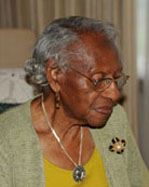 Alpha Hines Westbrook |
“Principal Reese was a disciplinarian, but he also had a good understanding of young people. Any punishment was always educational. He sought to engage and instruct students at all times.” |
|||||||||||||||||||||||||||
“As a 1938 graduate of Staley High School, the foundation of the school was well established before the Secondary School Study began in 1940. Books were number one; academics were strong and our principal emphasized the importance of study and scholarship.” |
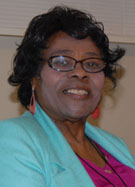 Gladys Bryson Clark |
|||||||||||||||||||||||||||
| While Staley High School was selected for the Secondary School Study during E. J. Granberry's tenure, Principal J. C. Reese seems to have been an inspiration for the experimental project even with his departure in 1944 to accept the supervisor-administrator of the Waycross black schools. Staley faculty considered withdrawing from the experimental project shortly after their entry; however, Reese's appointment seemed to provide the stability for them to continue the curricular venture. The Tri-County News (Sept. 7, 1944) reports "under his [Reese's] regime a progressive philosophy of education was emphasized, many physical improvements were made and a fine spirit of interrelationshp between the school and community were brought into the city." | ||||||||||||||||||||||||||||
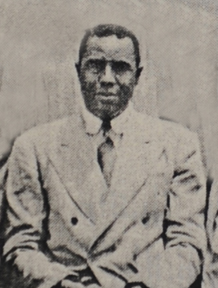 Principal J. C. Reese |
||||||||||||||||||||||||||||
|
“Professor Reese and others put the spirit in us. He was an aggressive person and confident as a principal. We liked him very much, and he was always encouraging. Principal Reese was very progressive and commanded respect.” |
|||||||||||||||||||||||||||
“During my years of work as an educator, I never came across a man who had a greater interest in children than Principal Reese. For those children who did not have a good lunch, he would give money. He would visit some families and ask them what could he do to help. He knew a hungry child could not learn.” |
“Mr. Reese was a dynamic personality. He would depend on the senior boys to 'help' him run the school. He would bring the boys into his office but he was really giving us a sense of responsibility. Staley instilled a sense of pride. And I developed a sense of being part of the Staley community. I have met lifetime friends because I went to this school.” |
|||||||||||||||||||||||||||
Many alumni complimented the leadership of Principal Daniel T. Grant while some others noted the controversial aspect of Grant's presence at Staley and in Americus. Indeed, Principal Grant discussed these tensions in his memoir, When the Melon is Ripe, and in a 1950 Staley High School article titled "Evil Forces in Americus." Perhaps someday a researcher will reexamine these and other documents and will attempt to explain the tensions at work during what was certainly a controversial time in the history of Staley High School. |
||||||||||||||||||||||||||||
Evil Forces in Americus Daniel T. Grant, 1950 |
||||||||||||||||||||||||||||
|
||||||||||||||||||||||||||||
from Daniel T. Grant's When the Melon is Ripe Philosophy of the Americus and Sumter County Schools [developed during the principalship of D. T. Grant]: "We believe, have faith in, and are dedicated to democracy as a way of life. We feel that the Americus and Sumter County schools should contribute to the extension of this way of life by creating a democratic situation throughout the schools, where emphasis will be placed on the development of the whole child for full participation and adjustment in the society." |
||||||||||||||||||||||||||||
|
||||||||||||||||||||||||||||
"Principal Daniel T. Grant placed much responsibility on students and on the teachers. He demanded that we emphasize academics and would insist that we did things correctly. His expectations were high.”
|
||||||||||||||||||||||||||||

an institutional member of the International Coalition of Sites of Conscience
curator@museumofeducation.info
